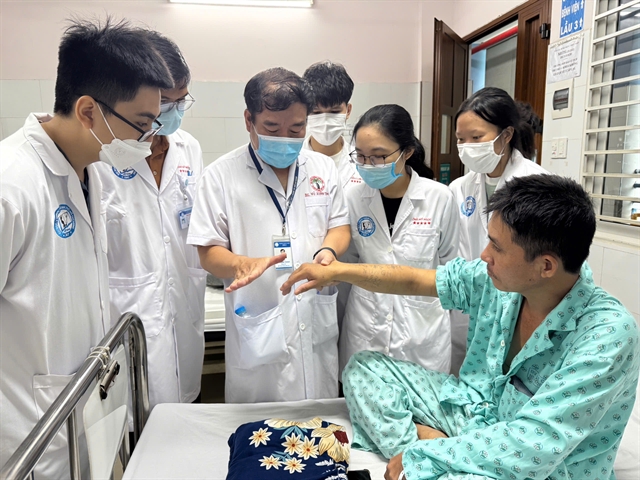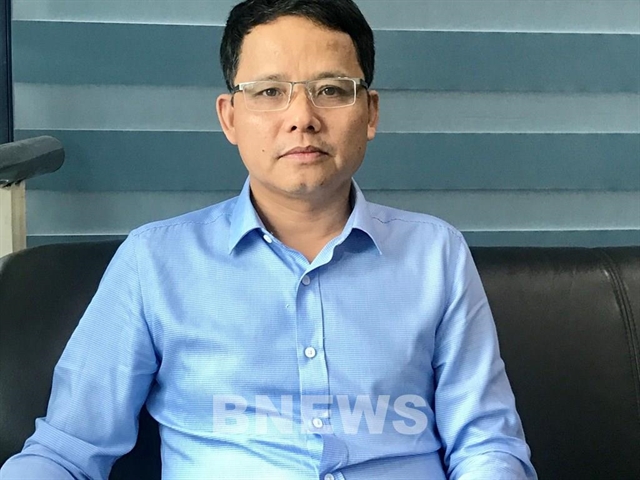 Opinion
Opinion


|
| Deputy General Director of Việt Nam Register Nguyễn Vũ Hải. VNA/VNS Photo |
Deputy General Director of Việt Nam Register Nguyễn Vũ Hải speaks to Vietnam News Agency about shortcomings in managing boats in Việt Nam.
How are boats managed in Việt Nam, particularly in terms of vehicle registration?
The latest census on water vessels in Việt Nam was conducted in 2007. Over 370,000 water vessels were required to register. Since then, the Ministry of Transport repeatedly proposed the Government to hold another census but it could not be arranged.
As a result, we don’t have an official exact number of vessels which are operating across the country, although waterway traffic has developed, especially in the Mekong Delta. Some vehicle owners did not report to authorities when they dismantled their vessels. In other cases, vehicle owners delayed registering their vessels.
Authorities can only manage registered vessels and find it difficult to find unregistered ones.
However, we still have advantages in managing water vessels. The first advantage is a proper legal framework in the Law on Inland Waterway Traffic, Government decrees and ministry circulars, national technical standards and quality assessment procedures.
Secondly, a network of registration offices have been set up across the country.
Thirdly, there is close co-operation among agencies in managing vessels including transport departments of cities and provinces, traffic police and traffic safety committees.
Next, thanks to the Government’s policy in reducing the burden on roads, more investment has been allocated to the waterway sector.
However, there remain disadvantages in water vessel management and registration.
The first disadvantage is the gap in investments for water vessels, some require huge investment for modern technologies while others are very simple and out of date. As a result, it is difficult to develop specific criteria to assess and manage water vessels.
The second disadvantage is the absence of shipbuilding factories in many localities. Major cities and provinces, like HCM City, Hải Phòng, Bà Rịa-Vũng Tàu, Khánh Hoà and Quảng Ninh, have sufficient networks of establishments providing maintenance and repair services, while other localities, especially mountainous remote areas, don’t have such facilities.
Without repair facilities, waterway transport cannot develop properly. While investors showed interest in developing such facilities, localities find it difficult to arrange land for them.
Another problem is that drivers fail to meet requirements to operate the vessels.
Self-modified vessels also cause problems for management agencies. For example, in the past, people used boats to catch fish and travel in reservoirs of Hoà Bình Hydropower Plant but in the last few years when tourism developed, people use such boats to carry tourists.
What has been done to solve the problems?
Waterway transport has developed in both number and quality. We can see increasing vessels on rivers or coastal areas, particularly those which are self-operated or have high loading capacity.
However, the number of vehicles which are not registered for quality re-examination and assessment has increased.
Việt Nam Register has worked with localities to tighten the registration of inland waterway vessels. We regularly conduct inspections at hotspots.
Vessel registration procedures have been cut and simplified to create further convenience for vessel owners. However, vessels are built without qualified designs, which meant they failed to meet technical requirements. To make such vessels eligible for operation, their owners must modify, repair and test them again, which all require more funding. We are seeking better solutions for this issue.
Improved quality of vehicle registration is expected to help ensure waterway transport safety. What is Việt Nam Register doing to improve registration quality?
Việt Nam Register has been strengthening measures to improve vehicle registration quality, not only for inland waterway vehicles, but for all. We also take measures to prevent wrongdoings and violations that intervene in the registration process.
All activities in the vehicle registration at registration offices are now recorded and transferred to the head office of Việt Nam Register. We also conduct unannounced inspections to registration centres in case of suspected violations.
Those who commit violations were suspended and punished.
Unregistered vehicles, especially small ones operating in remote areas were found to cause most accidents. So, we call on co-operation from local authorities and grassroots agencies to examine and oversee such vehicles.
Last but not least, it is necessary to further develop facilities that provide ship building, repair or maintenance services.
Vehicle owners must strictly follow regulations to ensure safety for both humans and vehicles. — VNS




